TRƯỜNG CƠ KHÍ - Đại học Bách khoa Hà Nội
Trường Cơ khí - Đại học Bách khoa Hà Nội
Ngày 2/12/2022, hội nghị nghiên cứu khoa học tháng 12 của trường Cơ khí đã diễn ra tại phòng 923, Thư viện Tạ Quang Bửu trong không khí thân mật và vui vẻ.
Đây là hoạt động khoa học thường xuyên được trường Cơ khí tổ chức, nhằm tạo một môi trường học thuật cho các thầy cô, các nghiên cứu sinh, nhà khoa học của Trường được trao đổi thông tin về các lĩnh vực nghiên cứu và giao lưu học tập.
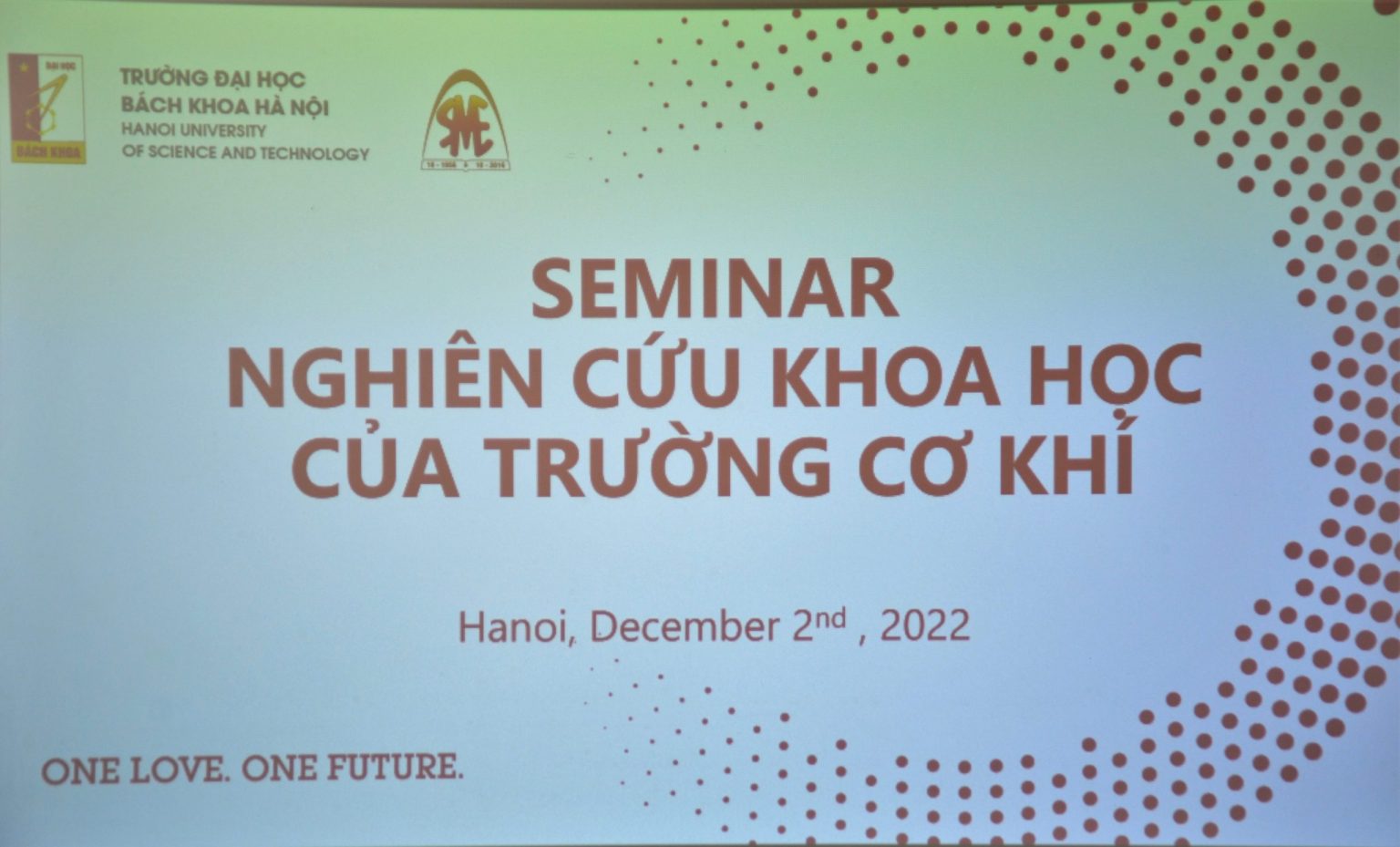
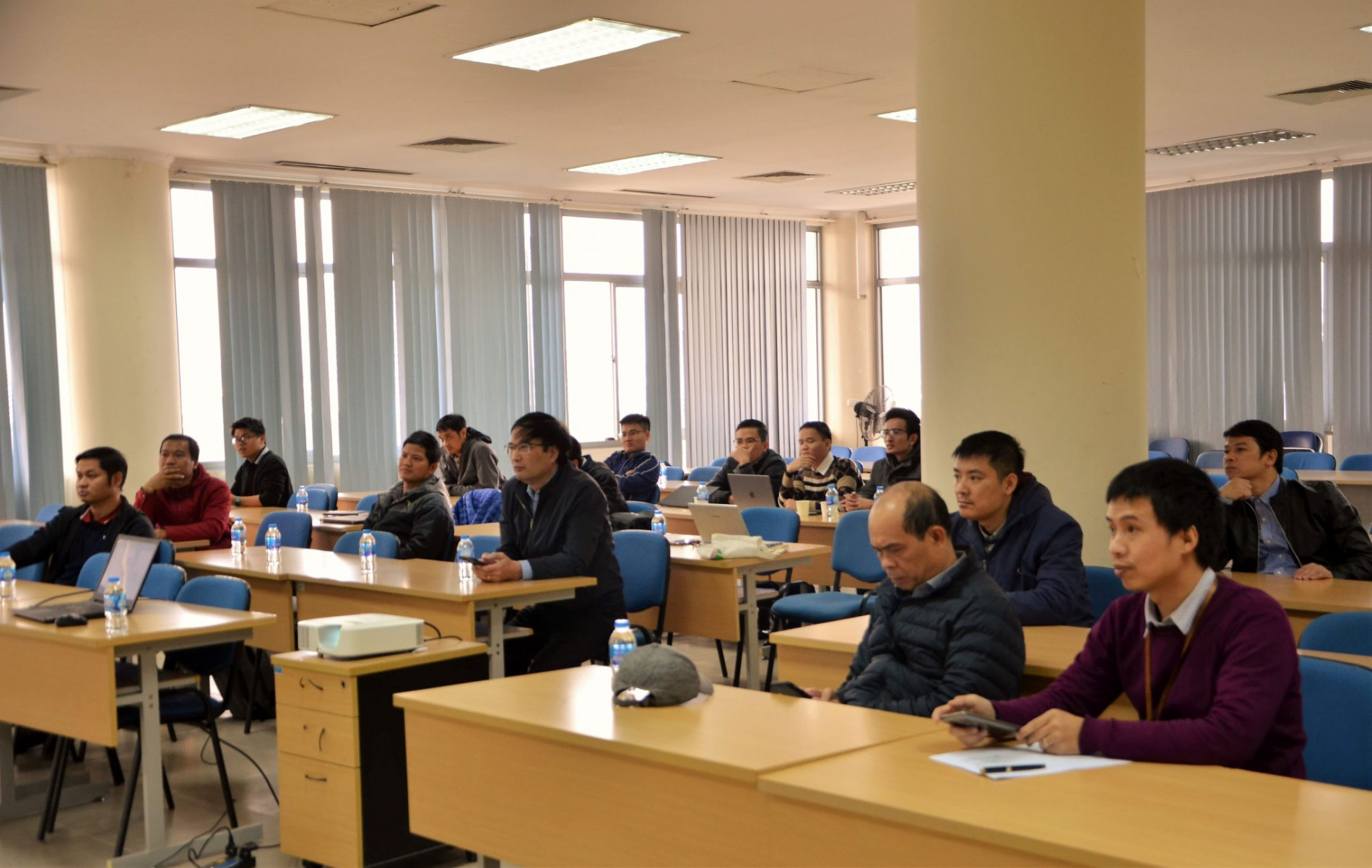
Hội nghị lần này được diễn ra với hai báo cáo nghiên cứu của hai diễn giả: TS. Hán Lê Duy – NCM Hàn và Công nghệ kim loại và TS. Ngô Ích Long – NCM Máy và Tự động hóa thủy khí.
Diễn giả: TS. Hán Lê Duy – NCM Hàn và Gia công kim loại
*Abstract:
In recent years, flexible electronics have attracted considerable attention because of their excellent flexibility and stretchability while maintaining electrical properties. According to research by IDTechEx, flexible device market sales are growing by more than 30% annually and will reach $301 billion by 2028, which is more than double the sales of the current conventional integrated circuits industry. Unsurprisingly, therefore, the number of studies and publications on flexible electronic devices is increasing rapidly. To meet the requirements of new flexible electronic devices, research on alternative mounting and bonding materials, such as lower temperature alloys or conductive adhesives, is essential. The selection of material for the most flexible plastic circuits depends on a combination of performance, processing, and cost. Heat-stabilised PEN/PET are mostly used as substrate materials for flexible electronics because of advantages that include: low cost, transparency almost like glass, low water absorption and moisture contamination, and competitive mechanical properties. However, the low melting temperature of heat-stabilised PET/PEN is not compatible with conventional solder temperatures. Therefore, adhesives or low-temperature solders must be considered for attaching components. Generally, the medium to high melting point solders group (such as SAC105, SAC305, Sn91Zn9) has two undesirable effects on packaging technology: warpage of the intermediate layer, and thermal stability of the polymer substrate. Among low-temperature alloys, the eutectic InSn based alloy has a very low melting temperature, high ductility, and low electrical resistivity, and could become a good candidate for joining material in flexible electronics. However, phase coarsening and low tensile strength are disadvantages of this alloy. The motivation for this study is therefore focused on solving and overcoming the limitations of the eutectic InSn alloy.
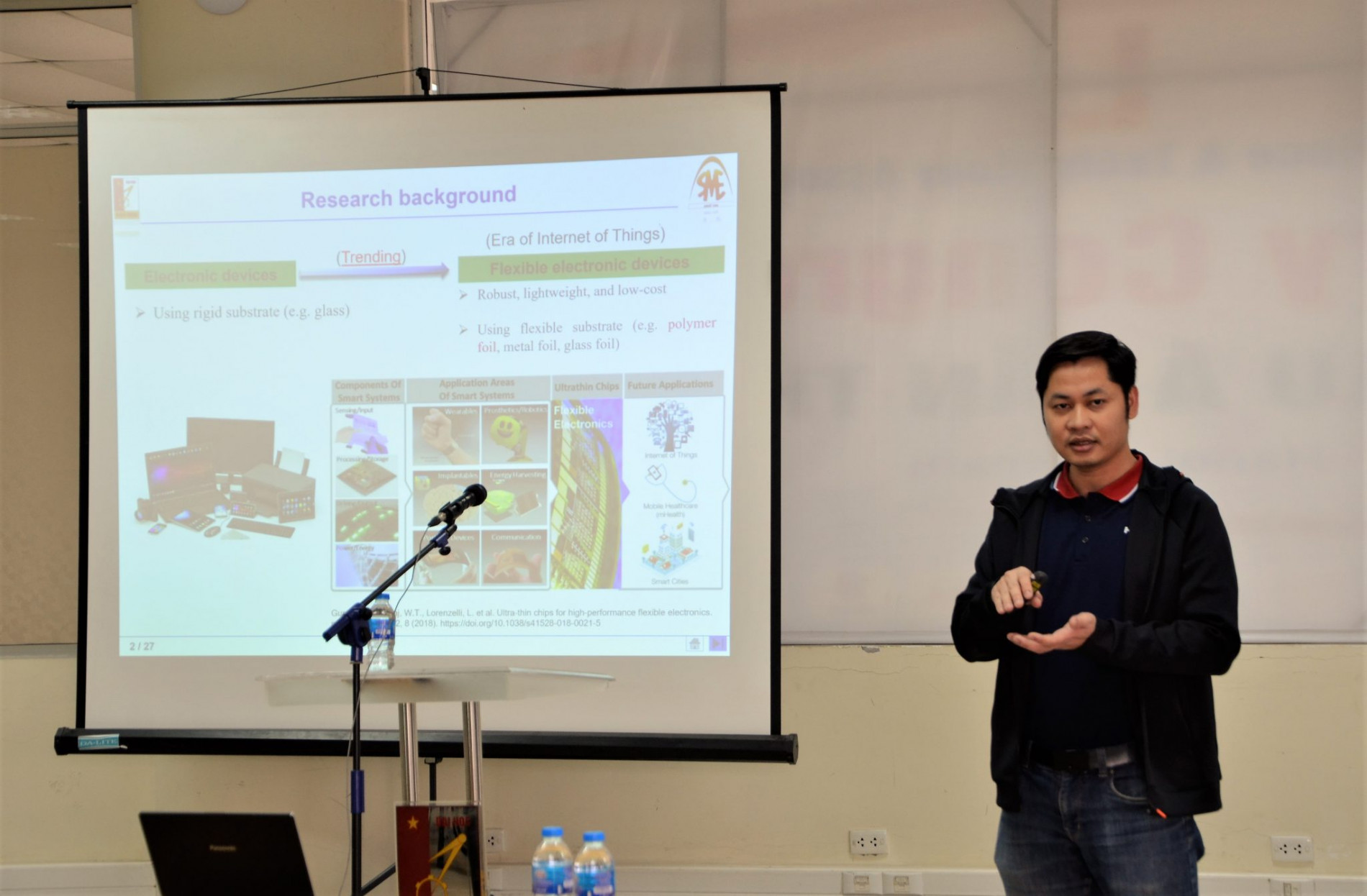
TS. Hán Lê Duy trình bày tại hội nghị. Ảnh NHT
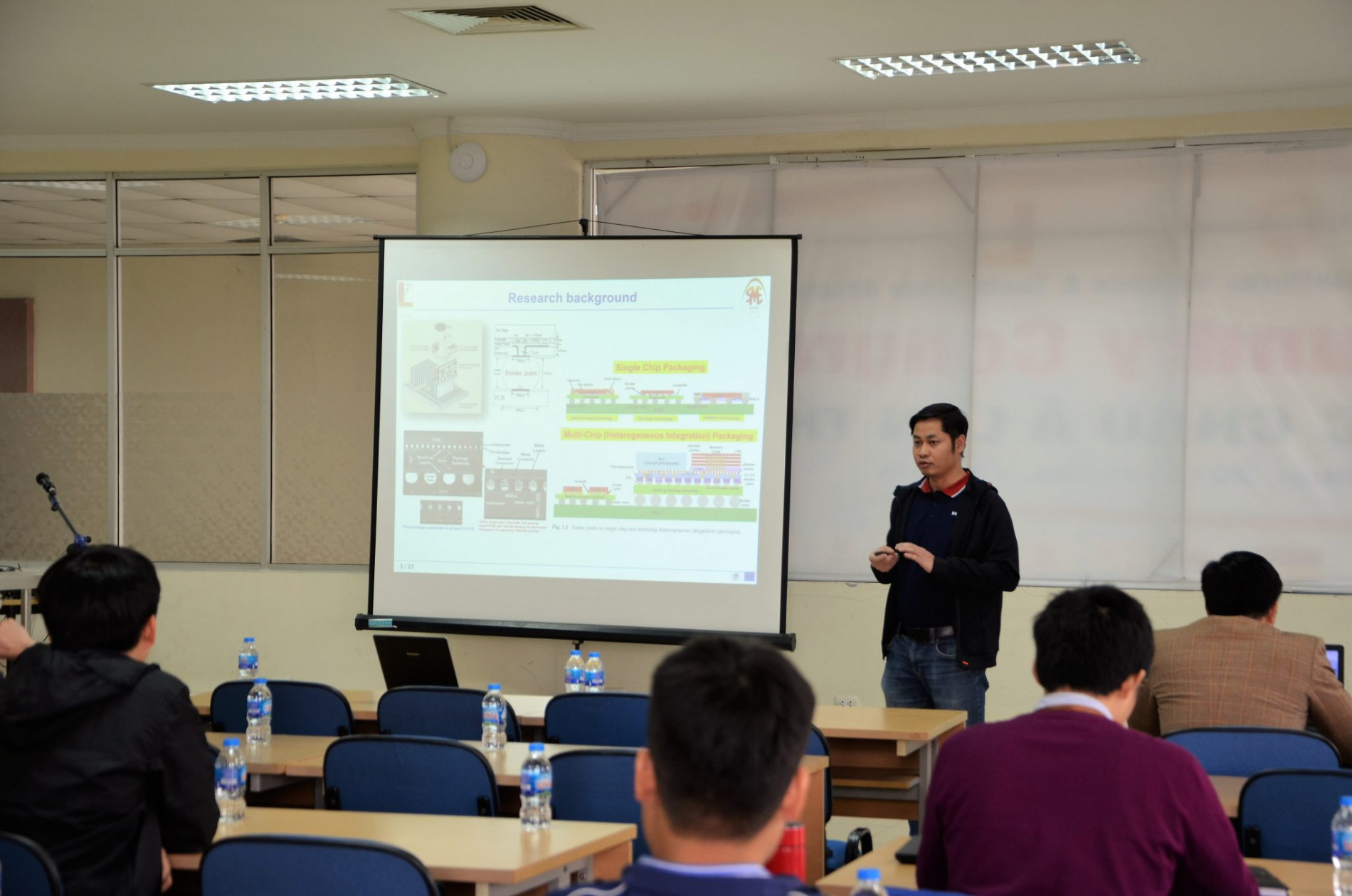
Diễn giả: TS. Ngô Ích Long – NCM Máy và Tự động hóa thủy khí.
*Abstract:
Microfluidic devices are a new and advanced approach that can generate monodisperse micro/nanoparticles with controllable size distribution, high speed, and reproducibility. They are being used in many potential applications, such as environmental sensing, medical diagnostics, drug discovery, drug delivery, microscale chemical production, combinatorial synthesis and assays, artificial organs, and micro propulsion, microscale energy systems. However, in fact, many issues still need to be solved for either fabricating or controlling the microdroplets in stable and reliable conditions along with the prolong lifetime of such devices. The objective of this keynote is to share some of our achievements in studying fluid flows in droplet-based microfluidic devices. Based on these achievements, the important aspects are proposed for discussing prospects and challenges in research and development of such devices. This keynote is expected to be useful and valuable in contributing to a future era with new and potential microfluidic
technology in Vietnam.

TS. Ngô Ích Long trình bày tại hội nghị. Ảnh NHT
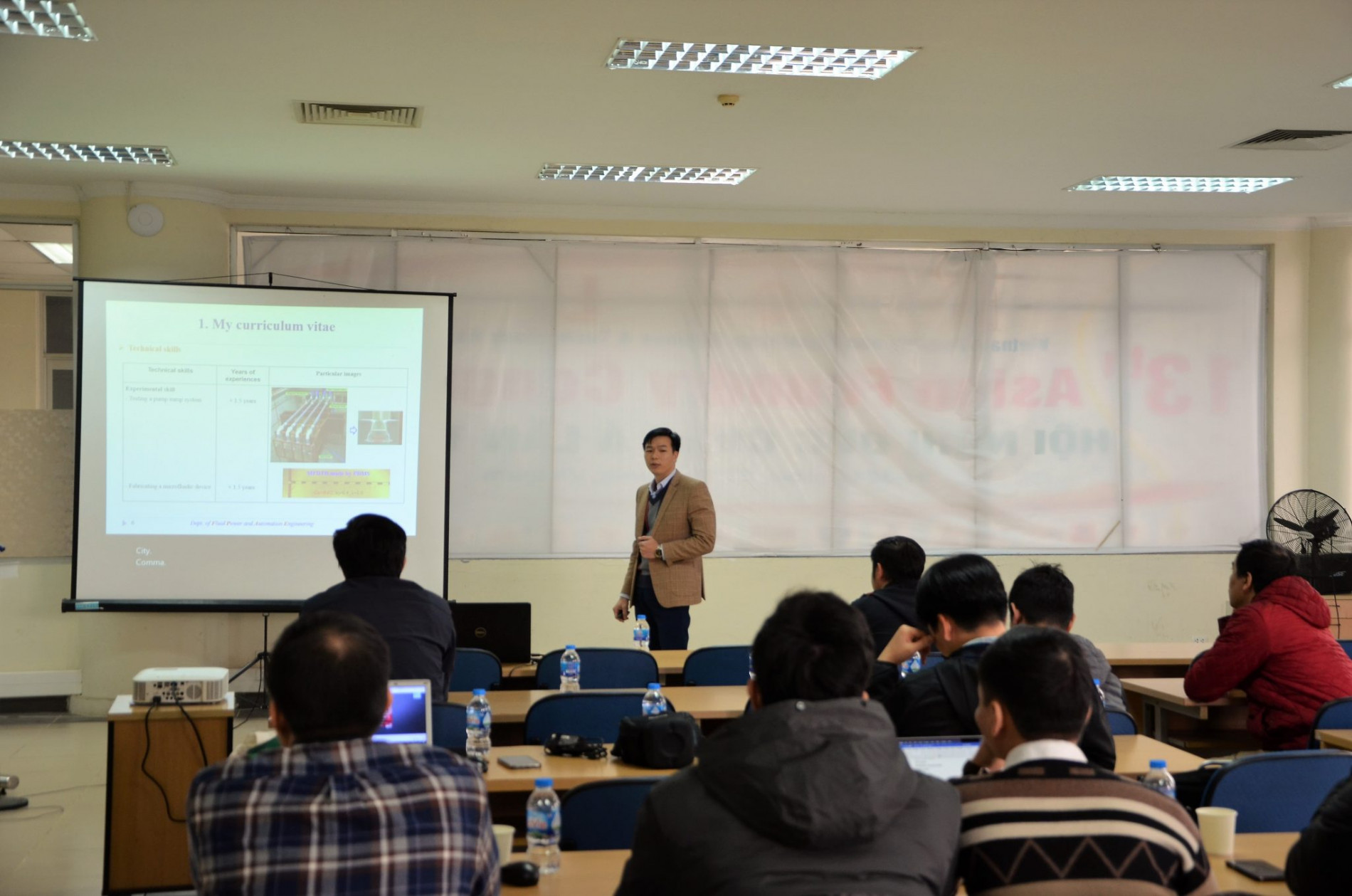
Một số hình ảnh của hội nghị:
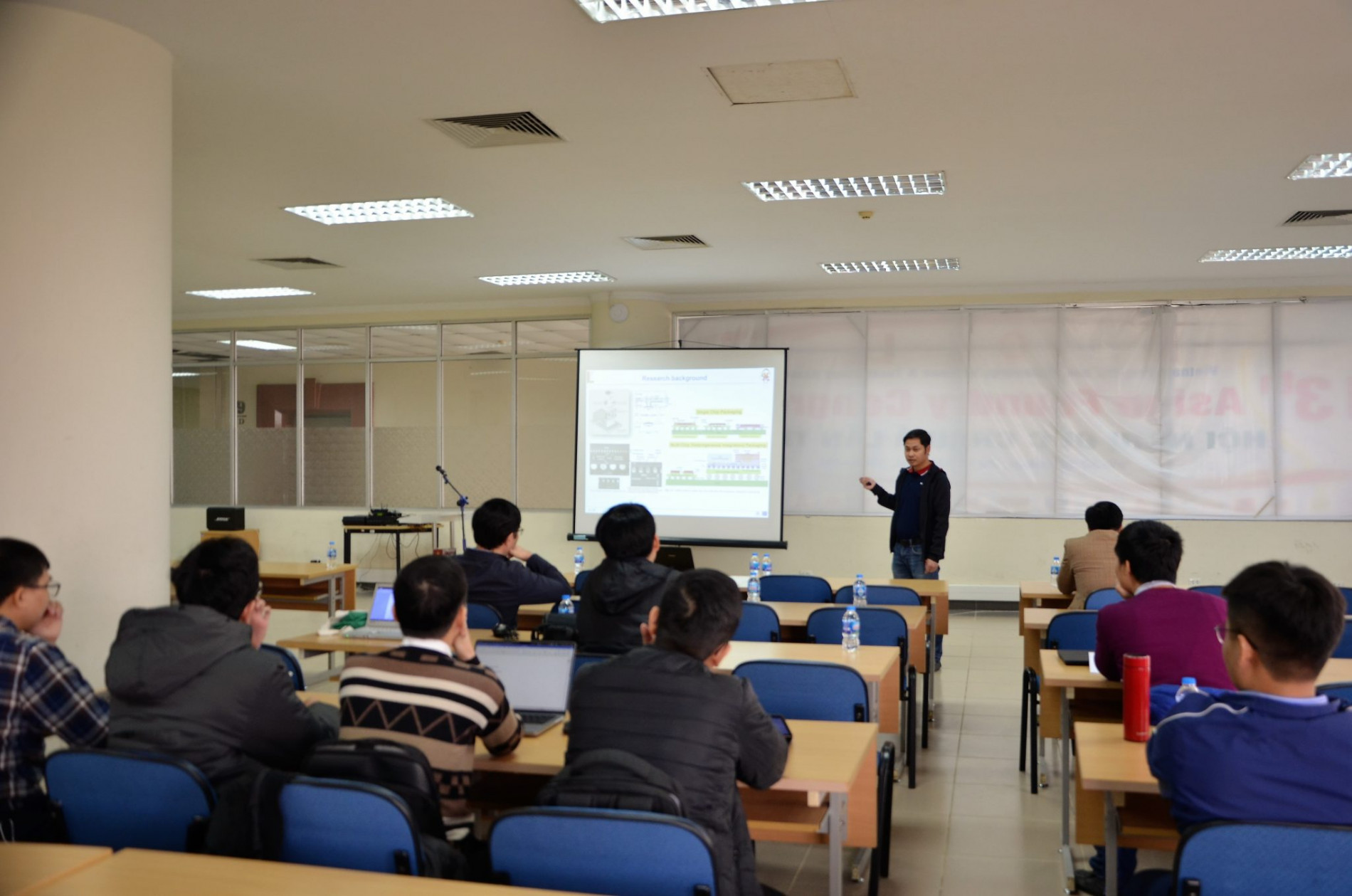
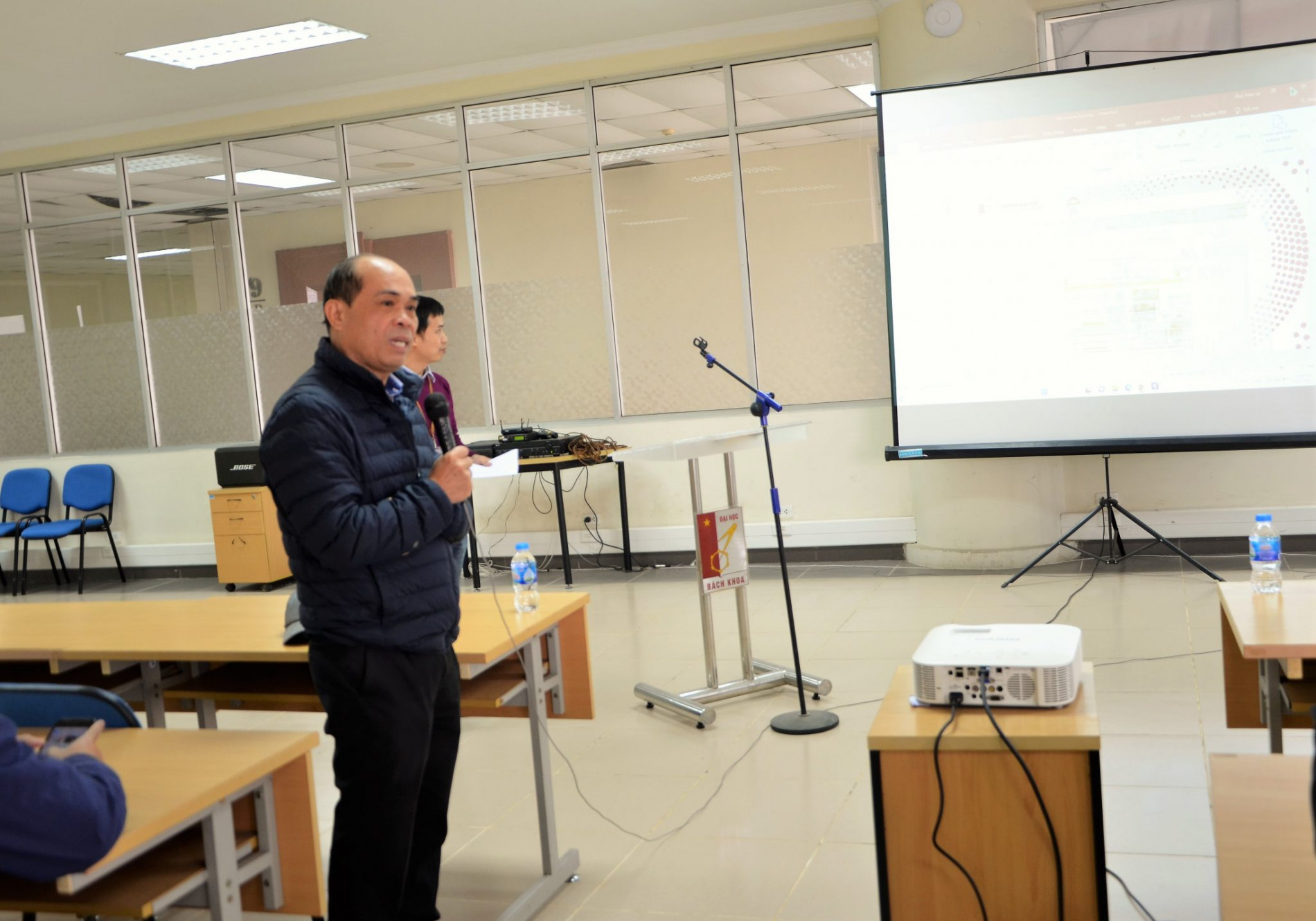
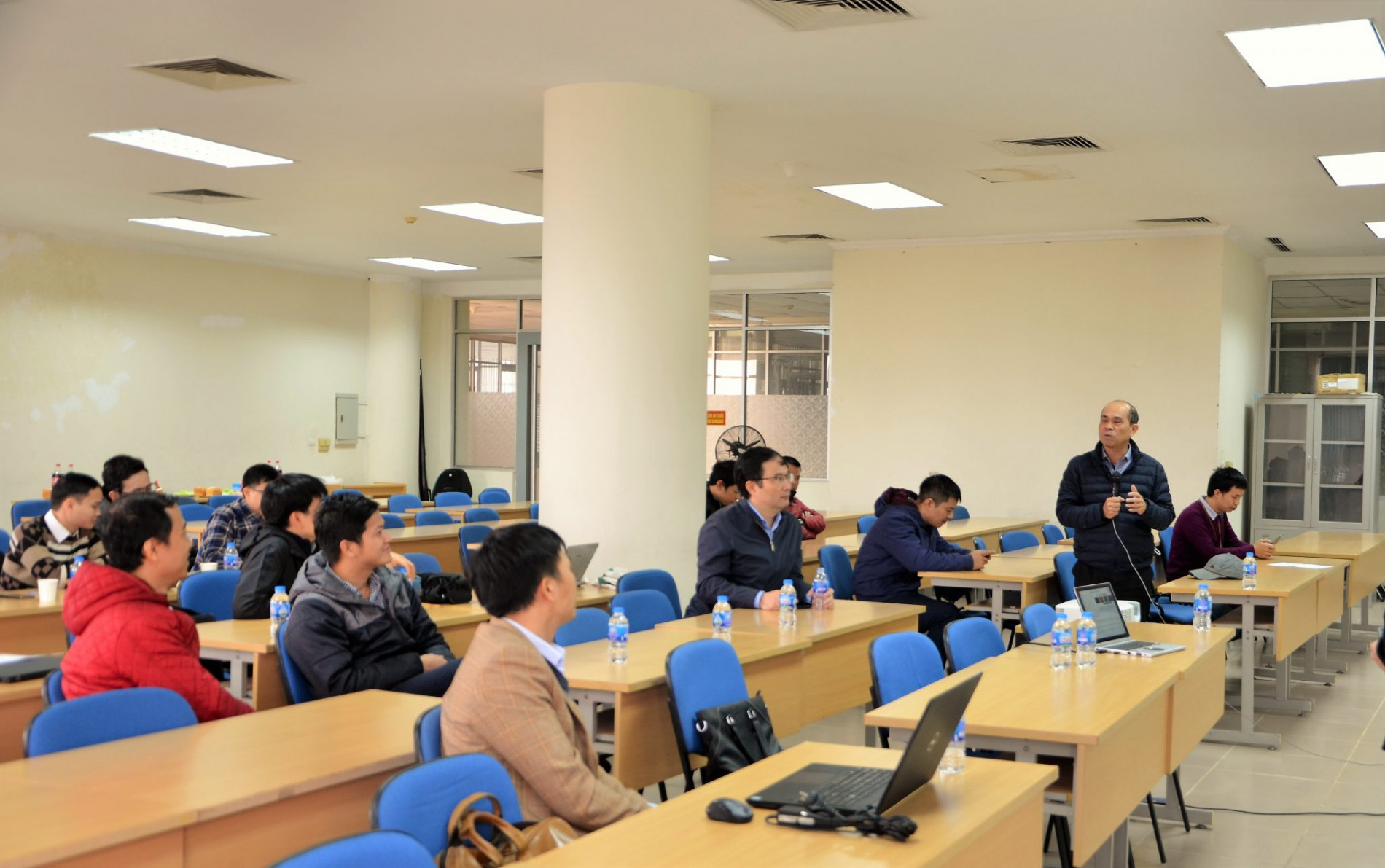

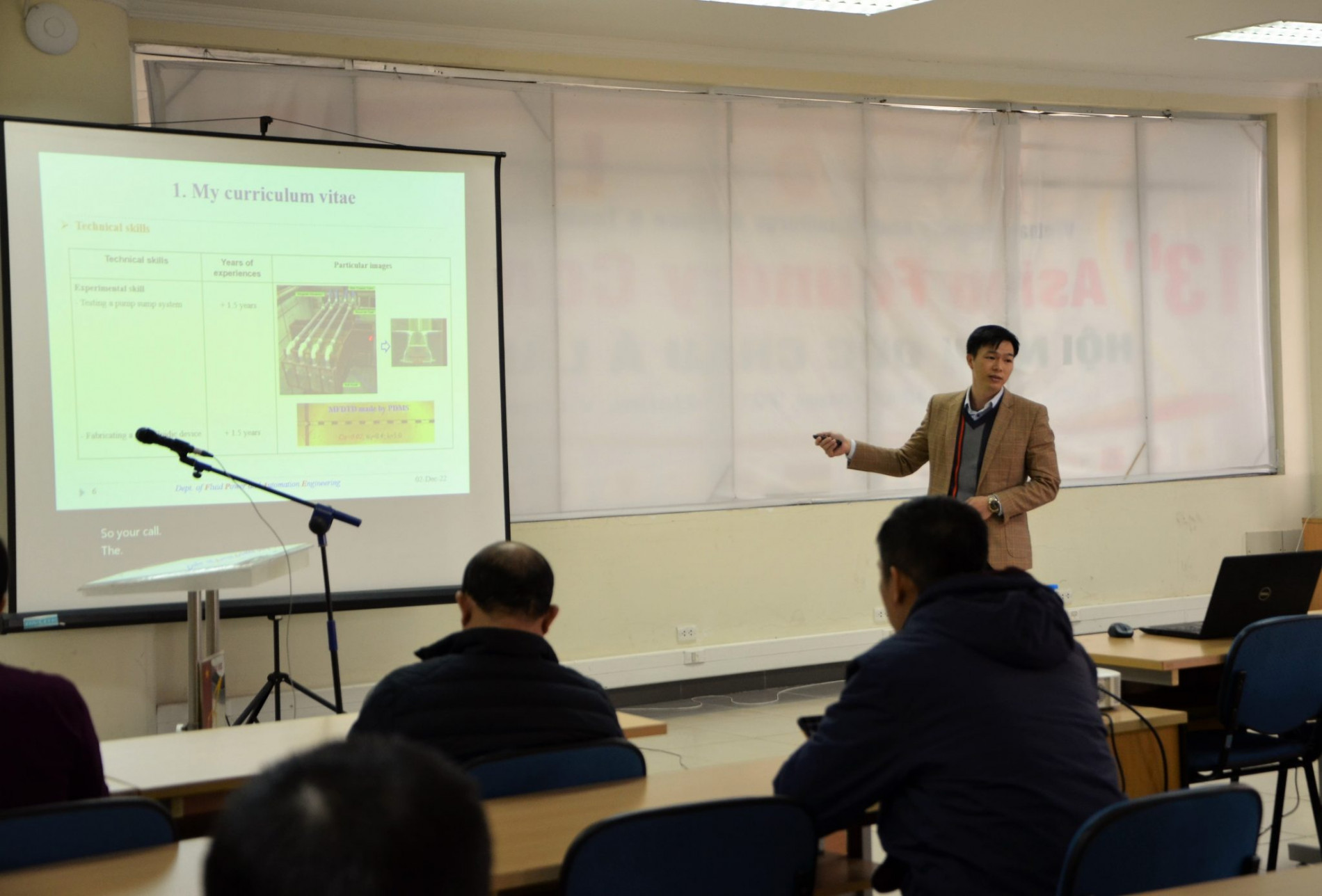

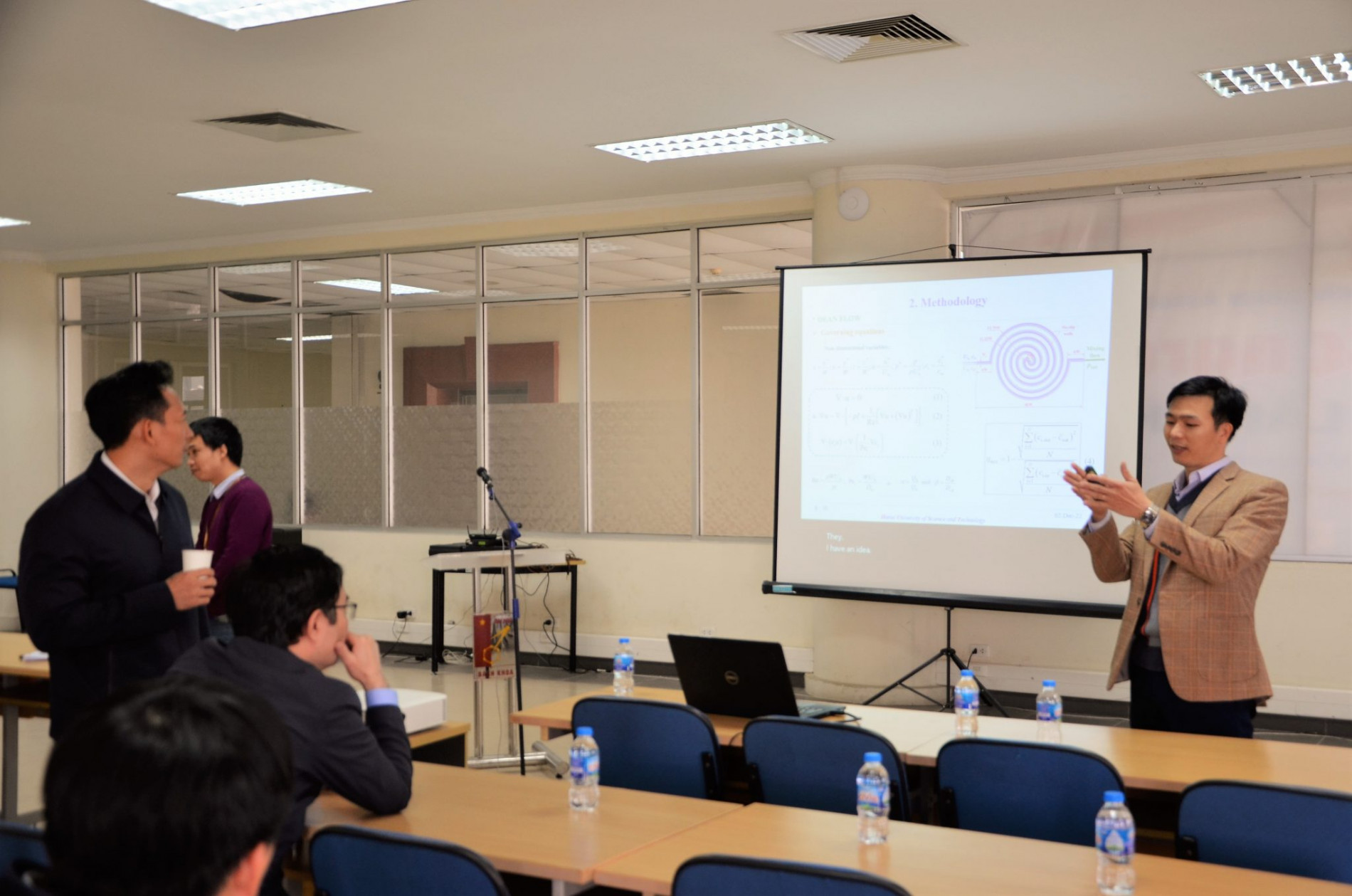
Những tin mới hơn
Những tin cũ hơn